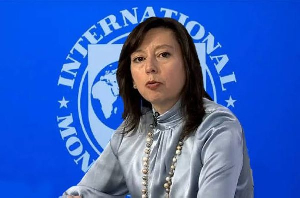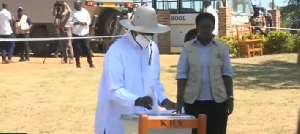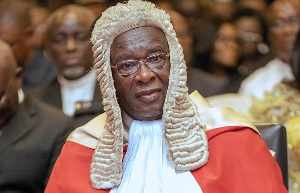It can safely be stated that the greatest danger to man is man himself. Why do I say so? Man has become so greedy in this time and age of unbridled consumerism so much so that man is creating conditions for his own extermination and extinction from the face of the earth. In my geography lectures at the university, I was told that geography is anthropocentric or man-centered. I think, on hindsight and reflection, that should not be the case. Geography is said to be the study of the earth as the home of man and also the study of areal and spatial differentiation. Why cannot we say that geography is the study of the earth as the home of multitudes and diversities of life? Don’t animals and plants have rights? Man has become self-centered and greedy to the extent that he cares only about his ego needs and less about the needs of other organisms and earth users.
Why should one man have more than one car or more than one refridgerator? If all the 7 billion or so humans were all to have cars and houses, what great pollution there would be from the exhaust of fossil-fuel powered cars and what a danger we would cause to the reserves of our finite resources such as iron, rubber, copper, petroleum and other natural resources? As our population grows exponentially and geometrically, we are reminded of the Malthusian spectre of doomsday. When demand far outstrips supply, then there will be water wars, raw material wars, land space wars, among others. Capitalism has taught us to create wealth and to consume, consume and consume but it has not provided the means of containing our incalculable negative externalities or social costs such as noise pollution, from the hum and drone of automobiles, locomotives, ships and aeroplanes.
Our mining activities in the dense forest areas of Ashanti, Western, Eastern and Central Regions of Ghana are causing vast areas of soil erosion, badlands, carapaces, bogs and marshland. Our flora and fauna are greatly being depleted and decimated by these unregulated mining activities. Take for example, the illegal galamsey miners along our prime rivers such as Tano, Ankobra, Offin, Pra, Birim and Ayensu. These rivers are losing a lot of forest in their catchment areas, leading to floods in the rainy season. These rivers are being toxified by harmful discharge of mining effluents which contain cyanide and sulphuric acid. Many communities living along these rivers are gradually being poisoned and some have lost their means of livelihood because of displacement from their farmlands as the large scale conglomerates, as well as the small-scale galamsay miners, have taken over.
The owners of the land are marginalized as they receive no royalties or compensation. Many areas in Tarkwa, Prestea, Obuasi, Aboso and Nsuta are sorry sights with shacks and slums. One wonders what the multinational mining corporations are ploughing back to the communities by way of corporate social responsibility. In fact, some of the mining activities are unsustainable as they rob the country and the local communities because very little money (25%) goes into the national kitty from gold concessions. It is high time the NDC government took action to renegotiate some mining agreements. New foreign investors in mining, quarrying, lumbering and fishing should be properly vetted before they are granted licences to trade. They should come up with copious environmental impact assessment plans to show how they will mitigate against the social costs which they create.
It is important to note that each land area has a carrying capacity or threshold population which is the ideal population it can sustain. In this regard, it is important to examine each ecosystem and know the ideal population size and the social amenities to provide. Right now in Ghana, our planners have been sleeping because in most cities such as Accra and Kumasi, the population size is beyond the threshold or carrying capacity, hence great strains on transport infrastructure, educational system, health and sanitation infrastructure, housing accommodation, water supply reticulation, and power consumption, among others. This is why we need to take certain critical measures:
1. Decongest the cities by developing the rural areas
2. Decongest Accra and decentralize most of the service functions in the primate city, Accra, by developing new growth poles in other parts of Ghana.
3. Implement population control measures such as family planning, tighter immigration against Ecowas members and having a two-child policy, among others.
4. Boost agriculture production through a revival of Operation Feed the Nation
5. Provide a master plan for Ghana through roll over five year plans
6. Increase measures for forest conservation, wildlife protection and control of both inland and sea fishing by banning the use of small-mesh nets and foul fishing methods such as use of explosives, chemicals etc.
7. Sensitize communities through campaigns to encourage them adopt right farming practices such as mechanization, hybrid seeds, application of fertilizers, among others.
8. Educate citizens to cage their livestock so as to reduce overgrazing and desertification, especially in the Savannah and Sahel northern regions.
9. Increase inspection of industrial premises to check how they discharge effluents
10. Encourage more efficient methods of extracting raw materials and ask manufacturers to recycle their waste material
11. Protect river catchment areas and their gallery forests
12. Organise awareness campaigns in schools and colleges across Ghana so that children become aware of the causes and dangers of climate change. This can be in conjunction with UNICEF, UNDP,UNEP and Green Party.
13. Build more dams and reservoirs in the country to reduce surface run-offs, rill erosion, among others
14. Monitor emission levels of chloro-fluoro carbons (CFCs) across the country to advise on corrective action
15. Encourage judicious exploitation of our flora, fauna and mineral resources by strengthening the legal and environmental requirements and oversight
There is need to reduce the carbon footprint of the mining conglomerates in Ghana. Also, the cumulative impact of unhealthy socio-cultural and economic activities in Ghana, among all of us, call for sober reflection on how we go about to eke a livelihood. What about bush burning to hunt for grasscutters or big bush rodents, charcoal burning, wrongful farming methods such as shifting cultivation and slash and burn, variously called chitemene, milpa and lading, among others? There are skeptics today, even in the advanced countries, who do not buy into the idea of global warming and as such, they see no immediate problem or challenge to the existence of man. These are the investors whose interest lies in the bottom line and profit maximization at any cost. Despite irrefutable evidence provided to the contrary concerning global warming, these hard-core agnostics believe the idea of global warming is a fallacy and a ruse to engage in what some academics dub as ‘enlightened self interest’. The major culprits of pollution in the west have failed to sign on to the Kyoto, Copenhagen and Helsinki protocols. We need to come up with proper environmental policies in Ghana in order to have sustainable development which will meet the needs of the current generation and will not impair or jeopardize the needs of future generations. We need to sensitize our children in schools to be environmentally-conscious and friendly. We can use folktales and some positive aspects of our culture to educate the older folk to look after the environment. These can be explored from Ananse stories, celebration of festivals such as Akwambo, Odwiraa, Fetu, Aboakyir, Bakatue, Dipo, Ohum, Dambaa, Homowo, Kotokro, Okyir, Ahobaa, Hogbetsotso, Dagbon, Kundum, Akwasidae, among others. The Ghana Customs Authority should be vigilant against the unregulated importation of second-hand cars and fridges which do not meet the required standards. Heavy polluters such as the mines should be made to pay heavy fines and penalties or what is termed ‘polluter pays’. Those business activities which discharge heavy amounts of chlorofluorocarbons should be identified and intervention measures put in place. The CFCs deplete the ozone layer, thus exposing the earth’s atmosphere to harmful ultra violet rays and radiation and disturbing the climatic cycle and weather patterns. The departments of agriculture, wildlife and forest conservation, fisheries and industries should increase their inspectorate roles and come up with innovative ideas to conserve our natural resources. They should recommend the enforcement of robust legal regimes which will serve as deterrent. We need to go for clean sunrise industries such as services instead of focusing on the depleting robber economies in the sunset industries. We need more investment in the midstream and downstream industries which add more value and use less natural resources. These are the human-capital intensive knowledge industries of health, education, hospitality/tourism, transport, entertainment, banking and finance, personal services, professional services like accountancy, law, architecture, insurance, beauty care, commerce and e-commerce.
By Kwesi Atta Sakyi B.A.(Ghana), MPA(Unisa), NDP, Group Dip.(Jersey), 4Yr Tr. Cert
Opinions of Sunday, 4 September 2011
Columnist: Sakyi, Kwesi Atta














